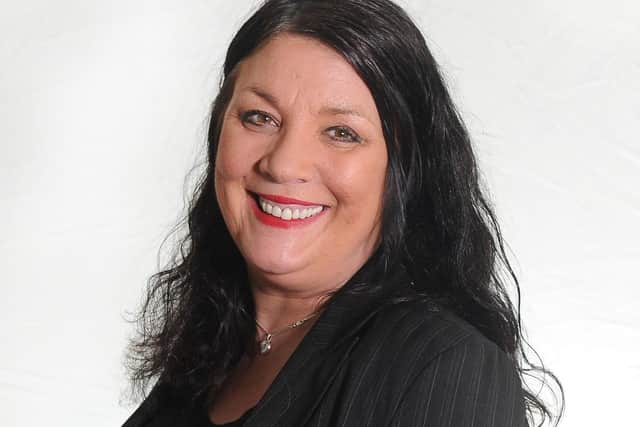Why this Barnsley lass backs call for National Accent Day - Jayne Dowle
And I’d like to also underline the concerns raised by Sir Peter Lampl, chairman of The Sutton Trust. I’m delighted to learn that this distinguished social reformer also hails from Barnsley and is speaking out vehemently against ‘accent bias’ in the UK.
Accents associated with Northern and Midlands cities such as Manchester, Liverpool and Birmingham - commonly stereotyped as “working class accents” – and ethnic minority accents, including Afro-Caribbean and Indian, are the lowest-ranked by others, new Sutton Trust research finds.
Advertisement
Hide AdAdvertisement
Hide AdSir Peter, whose father, a Viennese émigré, came to England in 1938, moved from Yorkshire to Surrey at the age of 11, and was educated at grammar schools before studying at Corpus Christ College, Oxford, and The London Business School.


It’s fair to say that the 75-year-old, who has worked in the USA and across Europe and acquired a string of accolades and honorary doctorates, knows a thing or two about the world.
It’s both heartening to see that his organisation, which campaigns for equality and social mobility, sees fit to highlight the fact that as soon as an Englishman (or woman) opens their mouth, they are still, regrettably, judged.
The Sutton Trust’s new report, Speaking Up, surveyed thousands of British people and found that young people from the North of England the Midlands were much more likely to be concerned about how people judged their accents than their southern peers – and I use that word, peers, deliberately.
Advertisement
Hide AdAdvertisement
Hide AdHaving grown up in Barnsley, studied at Keble College, Oxford and then lived in London for half of my adult life, I know only too well that judgmental snobbery about how we speak is as rife now as it was when Sir George Bernard Shaw wrote his socially-progressive play Pygmalion in 1916, later turned into a 1964 musical film, My Fair Lady, starring Audrey Hepburn as a Cockney taught to ‘talk posh’.
“It is impossible for an Englishman to open his mouth without making some other Englishman hate or despise him,” Sir George wrote in the preface.
And sadly, that is still true. Despite all the claims of globalisation, our multi-cultural communities and the huge powers of communication and connection the internet offers between billions of people, if you don’t sound the ‘R’ in bath (there isn’t one) and drop your aitches, you’re likely to end up sidelined, ignored or worse, ridiculed.
Among adults in the Sutton Trust survey, 25 per cent said their accents had been mocked or criticised at work.
Advertisement
Hide AdAdvertisement
Hide AdOne miserable youngster from Leeds reported: “There seems to be a set accent within professional workspaces that mine does not conform to.”
Sadly, 30 per cent of students report being picked on due to their accents, which really is unbelievable.
If trigger warnings can be issued to prevent Oxford undergraduates being upset by the potentially ‘distressing’ groups at Freshers’ Fair, and every set text is scrutinised in case it offends someone, somehow, what on earth are university authorities doing to prevent young people from experiencing such clear prejudice at their start of their adult lives?
And outside the workplace, it gets worse; 47 per cent of university students and 46 cent of adults said their accents had been singled out or mocked in social situations.
Advertisement
Hide AdAdvertisement
Hide AdI’ll admit; over the years I’ve adapted my accent to suit the circumstances, and made conscious decisions to avoid dialect words so as not to confuse those who know nothing but boring old RP (received pronunciation).
However, I’ve never fundamentally changed the way I speak. I know that this works against me, but at my age I’m past caring, frankly.
I advise my two children – whose late father was Surrey-born, privately-educated and spoke straight RP – to modulate not eradicate. There is nothing more false than a person trying to layer one accent – which after all, RP is – over another.
But I can understand why young people might feel embarrassed. About 44 per cent of sixth-formers from the north of England who spoke to The Sutton Trust said their accent had been criticised or highlighted, compared with 30 per cent in Scotland and 24 per cent in the south of England.
Advertisement
Hide AdAdvertisement
Hide AdLet’s support, not just a whole day dedicated to the rich diversity of our UK accents, but a world in which we won’t need a special event, because the way that we talk will be regarded as far less important than what we actually say.